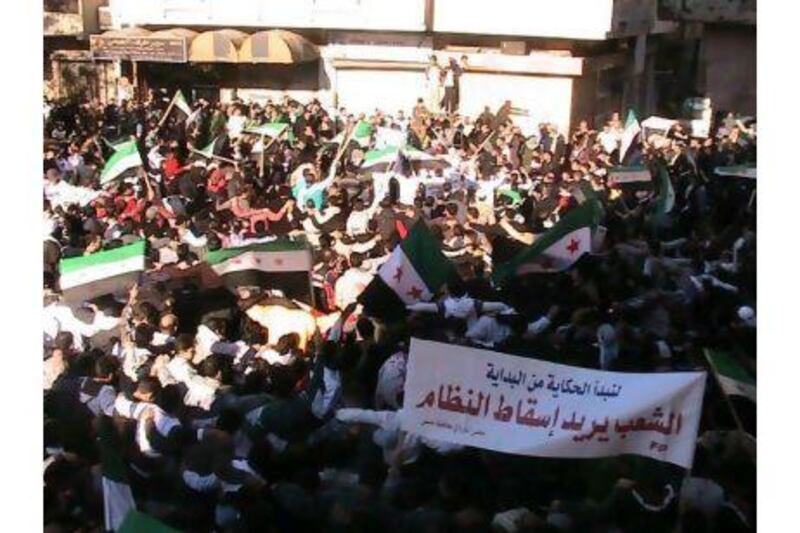Tucked away in the business pages on November 7 was a story that should have been on Page One of The National: Cheaper food good for suppliers' profits and for consumers.
This commentary began by saying that the UN index of food prices fell by 4 per cent last month.
If prices had risen by 4 per cent in one month, or even 2 per cent, the story would have had a huge headline. But in all media, good news somehow gets crowded out.
Food prices around the world respond to a tremendously complex set of signals - weather, population growth, stockpiles, drought, political crises and even the price of fuel oil for ships which carry grain. Every time there's a sharp increase people blame some global cabal or the CIA, but in reality a market is just an efficient mechanism with no motive of its own.
Kamran Nihar, Abu Dhabi
No surprise in trade zone boom
What a good lesson there is for everyone in Free zones drive Dubai's exports (November 7).
It turns out that if you provide good infrastructure, low taxes and minimum paperwork, you get an economic boom.
All over the world, however, governments move in the opposite direction, adding burdens which traders must bear.
Name withheld by request
More used cars means more cars
When I first arrived in this country I remember being impressed with how all the cars and SUVs on the road seemed to be late-model and shiny (except when dusty).
In the West old cars are numerous, some even "rusted out" from salt used to fight ice on the roads.
So it was interesting to read (Honda back in fast lane with used cars, November 7) that a used-car market is beginning to boom here.
Logically, people who can't afford a new car may be able to afford a used one, and so we can expect more drivers on the roads. I'm having trouble seeing that as good news.
Lief Hartmann, Abu Dhabi
Reading will tell if this is a mistake
I regret that Sir Arthur Conan Doyle's estate let itself get tangled up in an "official" new Sherlock Holmes novel (Back to Baker Street, November 7).
As a former Baker Street Irregular I fear that this will not end well. Still, I'll have to read the book to find out. As the great detective said: "It is a capital mistake to theorise before you have all the evidence."
Peter Campbell, UK
Slavery's wrong, anywhere, ever
I can't agree with the letter-writers who say we should accept the moral failures of whole societies in the past (Don't judge the past by the ethical standards of today, November 7).
Slavery, for example, was wrong, is wrong and will be wrong, no matter what the ancient Romans thought. Weren't there Greek philosophers who reasoned out that every man is born free? Only greed and callousness permitted slavery, then or ever.
Victor Arouen, Dubai
Objects from past aid understanding
At our house we are already enjoying your series 40@40, about "objects that have shaped the UAE".
On Monday I was explaining to my son how the boatbuilder's drill was used, and how clever a bit of technology it was for the days before electricity and batteries.
A series like this is a great help in reminding everyone how quickly things have changed.
Mariah Haddad, Abu Dhabi
Syrian elites don't care about people
Thank you for the informative and well-informed column by the writer who uses the pseudonym Jasmine Roman (Damascus's upper class clings to its privileged illusions, November 7).
I used to visit Damascus on business and know something of the upper strata of society she mentions, and their views as she expresses them ring true.
It's too bad some people have so little social consciousness and awareness of what is happening around them.
Donald Thomason, Dubai
The latest news from Syria (Arab League crisis talks over Syrian 'catastrophe', November 7) shows us what to expect from the Baath party.
People talk of the Assad regime but this is a whole ruling apparatus, mostly Alawite, that keeps the people divided and then kills many of them.
When the people too grow violent, as they are bound to eventually under this kind of treatment, the greater blood to come will be on the government's head.
Michael Zarick, Dubai





